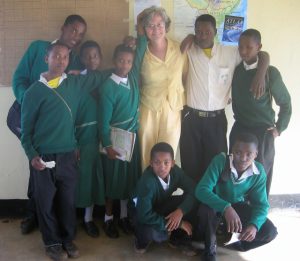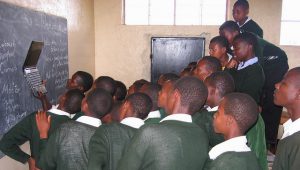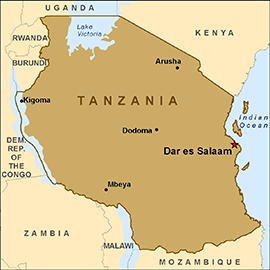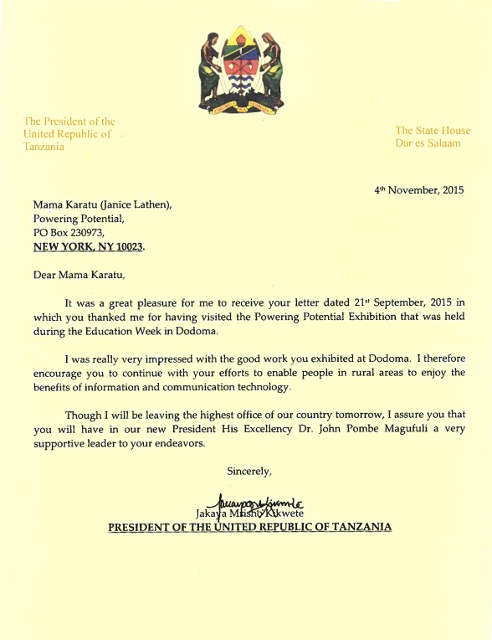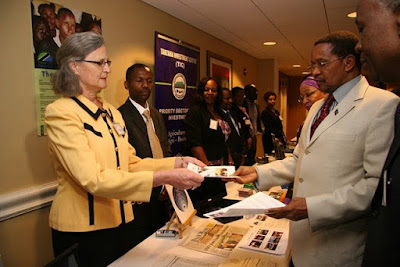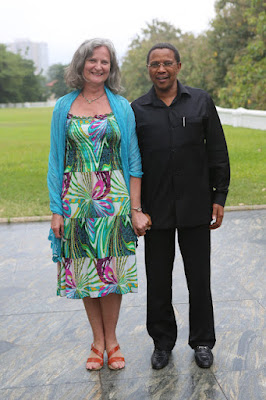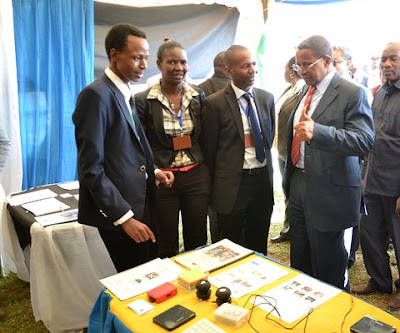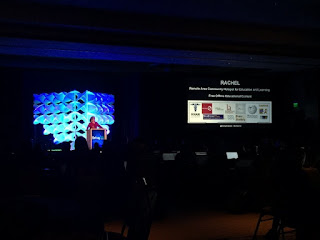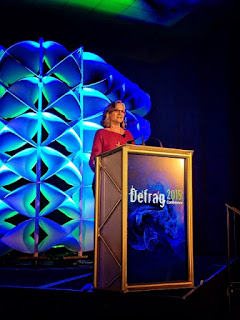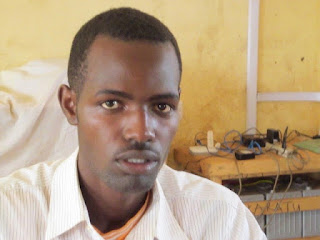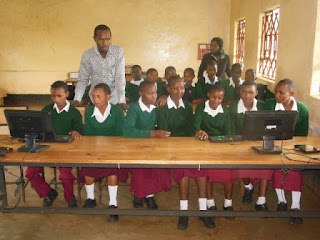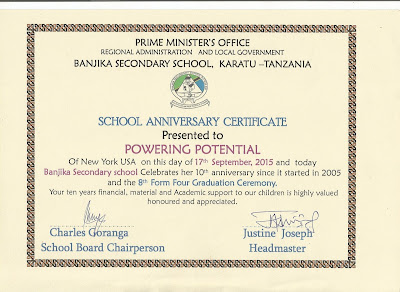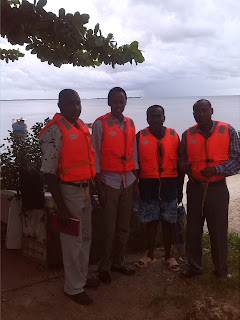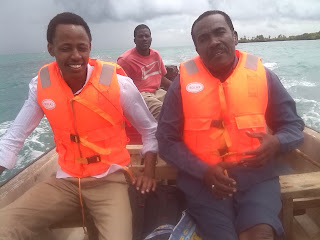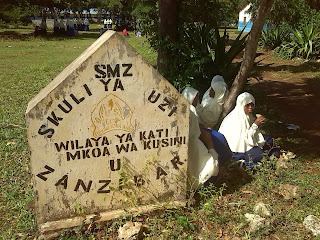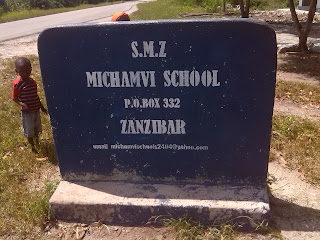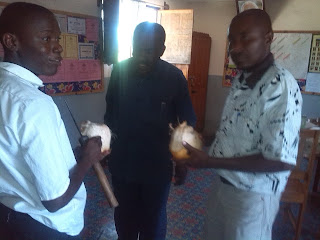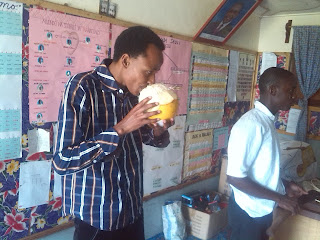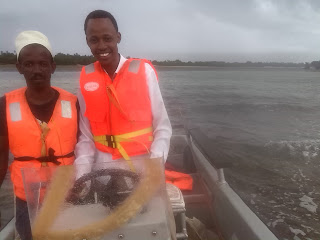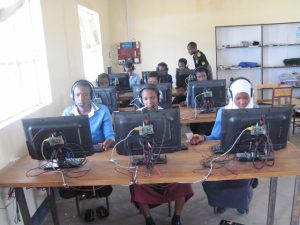 |
| Students viewing Khan Academy videos |
A Few Words from Albin Mathias,
Country Director of Powering Potential:
This Easter (March 27) our team celebrated the successful implementation of the Computer Lab-Phase 2 installation at Baray Secondary School in the Karatu District, Tanzania.
The school was out on break for Easter, but most Form 2 and 4 students opted to stay and continue with studies in preparation for their National examination.
These students were very excited! Once again, they approached the computers with the happiness I recall from 2012 when Phase 1 was implemented in their school. Most of these students have experienced using the RACHEL Education Resources. The first thing we noticed when the lab was ready to use is the way students ran to open them.
 |
| Students outside excited to get a glimpse of the new computer lab |
We met new teachers during the installation. Some were not working at the Baray School in 2012 when Phase 1 was implemented, but they have ideas of knowledge planted.
Science and Mathematics is still a challenge, especially for remote schools. Technology can help both teachers and students to simplify the learning process.
Madam Elizabeth, for example, is a Swahili Teacher. While looking at a physics video, she thought most students who opted not to take physics should now reconsider with these new tools. It makes a big difference for all of them.
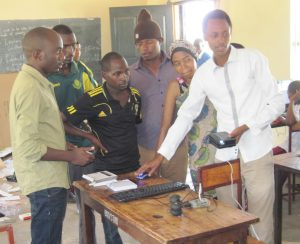 |
| Country Director Albin Mathias explaining our Pi-oneer program |
We express our sincere thanks to everyone who made this happen! This Phase 2 installation was made possible with support from the International Foundation, The Collegiate Churches of New York, SanDisk Corporation, Warren, Michael & Ena, Judy, Ahna, Lynn & Carrie, Chuck & Carole, Dan, Pam and Nancy!
The generosity of our donors allows the students to fulfill their dreams. Be a part of their lives by donating to Powering Potential.
On behalf of the students in Tanzania, asante sana! (thank you!)



